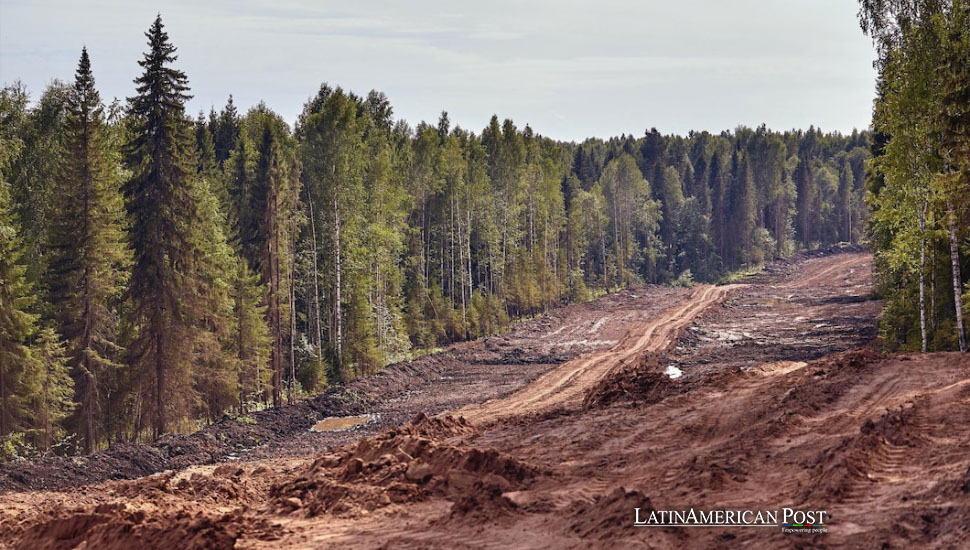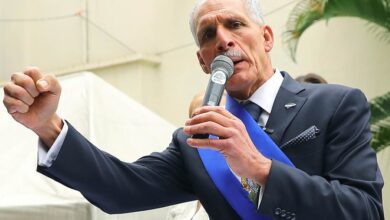Honduras Unites to Combat Deforestation with Ambitious 2029 Strategy

Honduran President Xiomara Castro launches a $769.6 million initiative to combat deforestation by 2029, urging legislative reforms and community involvement to protect the nation’s precious forests and biodiversity.
Honduras, a country known for its breathtaking landscapes and diverse wildlife, is grappling with a pressing issue: deforestation. Every year, a staggering 65,000 hectares of Honduran forests are lost to deforestation, a result of illegal logging, agricultural expansion, and urban development. In response, President Xiomara Castro has unveiled a comprehensive strategy, a beacon of hope in the face of this environmental crisis, with the aim to halt deforestation by 2029.
On a serene morning at Laguna del Cacao in Jutiapa, within the Caribbean department of Atlántida, President Castro presented the “Zero Deforestation Strategy by 2029.” This ambitious plan involves an investment of 19 billion lempiras ($769.6 million) and calls for significant legislative and enforcement measures to protect Honduras’s forests.
“The Honduran Parliament must reform the Penal Code to impose stricter penalties for environmental crimes,” President Castro emphasized during her speech. Her administration has already invested 1.6 billion lempiras ($64.8 million) since her tenure began, focusing on environmental protection efforts that have yielded notable successes in areas such as Lake Yojoa, the Río Plátano Biosphere, and the protected regions of the Cajón Basin.
Environmental Legacy and Community Involvement
President Castro’s commitment to environmental conservation is not just a governmental initiative, but a call to action for every Honduran. “We must protect our forests, rivers, and watersheds for future generations,” she urged, rallying the nation to defend their natural heritage with determination and courage. This plea resonates with the intrinsic connection that many Hondurans feel towards their environment, viewing it as an inheritance from their ancestors and a critical component of their national identity.
To enforce this strategy, President Castro has directed the Military Police of Public Order (PMOP) and the National Police to evict individuals engaged in the illegal destruction of forests and rivers within 45 days. Additionally, she mandated that environmental officials spend at least 50% of their time in affected areas, actively safeguarding the nation’s natural resources.
“The Mosquitia region, located in eastern Honduras along the Caribbean and bordering Nicaragua, is the lung of the world,” Castro declared. “We will not allow its destruction.” This region, part of the more significant Mesoamerican Biological Corridor, is one of the most biologically diverse areas in the world, home to countless species and vital ecosystems.
Historical Context of Deforestation in Honduras
Deforestation in Honduras is not a recent issue. The country has a long history of exploitation of its natural resources, dating back to the colonial era when Spanish colonizers began extensive logging and agricultural activities. Throughout the 20th century, deforestation accelerated due to the expansion of agricultural frontiers, particularly for coffee and banana plantations, major export crops.
The rise of urbanization and infrastructure development in the late 20th and early 21st centuries further exacerbated the problem. Illegal logging and land conversion for cattle ranching have been significant drivers of forest loss, contributing to the degradation of vital ecosystems and biodiversity.
In a significant move towards recognizing indigenous and Afro-Honduran land rights, President Castro delivered property titles for 9,064 hectares within the cultural zone of the Río Plátano Biosphere Reserve. This action benefits 27 communities and over 23,000 residents, acknowledging their historical ties to the land and their role in its stewardship.
This recognition is crucial for the sustainable management of forests, as indigenous and Afro-Honduran communities have traditionally practiced sustainable land use and forest conservation. Their involvement is seen as pivotal in the success of the “Zero Deforestation Strategy.”
International Support and Cooperation
Honduras’s efforts to combat deforestation have not gone unnoticed. The international community has rallied behind this cause, with various organizations and countries pledging their support. This global recognition of the importance of preserving Honduras’s forests is a testament to the significance of this endeavor. The United Nations, through its REDD+ program (Reducing Emissions from Deforestation and Forest Degradation), has been a crucial partner, supporting national strategies to reduce forest loss and enhance sustainable forest management.
Additionally, bilateral agreements with neighboring countries and regional collaborations within Central America aim to address the transboundary nature of environmental challenges. These cooperative efforts are essential given the interconnected ecosystems and shared ecological concerns across the region.
The “Zero Deforestation Strategy” is not just an environmental initiative but has significant economic implications. By protecting forests, Honduras can enhance ecosystem services vital for the country’s economy, such as water regulation, soil protection, and climate stabilization. Forests also support tourism, a growing sector in Honduras, attracting visitors to its natural parks, wildlife reserves, and scenic landscapes.
Furthermore, the strategy includes reforestation and afforestation programs that create jobs and promote sustainable livelihoods. These programs are vital for rural communities, where employment opportunities are limited and dependency on natural resources is high.
Challenges and Future Prospects
Implementing the “Zero Deforestation Strategy” will not be without challenges. Corruption, weak law enforcement, and conflicting land use interests pose significant obstacles. The socio-economic pressures driving deforestation, such as poverty and land tenure issues, must be addressed comprehensively.
However, President Castro’s administration is optimistic. By integrating environmental protection into national development plans and fostering a culture of conservation, Honduras aims to set a precedent for sustainable development in the region.
President Xiomara Castro’s “Zero Deforestation Strategy by 2029” represents a pivotal moment in Honduras’s environmental history. Her administration aims to reverse decades of forest loss and degradation by committing substantial resources and calling for legislative reforms. This strategy seeks to protect Honduras’s natural heritage and ensure the well-being of future generations.
Also read: Charting New Financial Paths: Honduras Hosts BCIE Governors Meeting
As Honduras moves forward with this ambitious plan, the world watches with hope and anticipation, recognizing that preserving the nation’s forests is a national priority and a global imperative. Through collective effort and steadfast commitment, Honduras strives to emerge as a leader in environmental stewardship, setting an example for other nations facing similar challenges.
This comprehensive strategy, deeply rooted in Latin American history and the nation’s cultural identity, highlights the critical role of forests in sustaining life and prosperity by uniting governmental actions, community involvement, and international cooperation. Honduras endeavors to secure a greener, more sustainable future for all.





